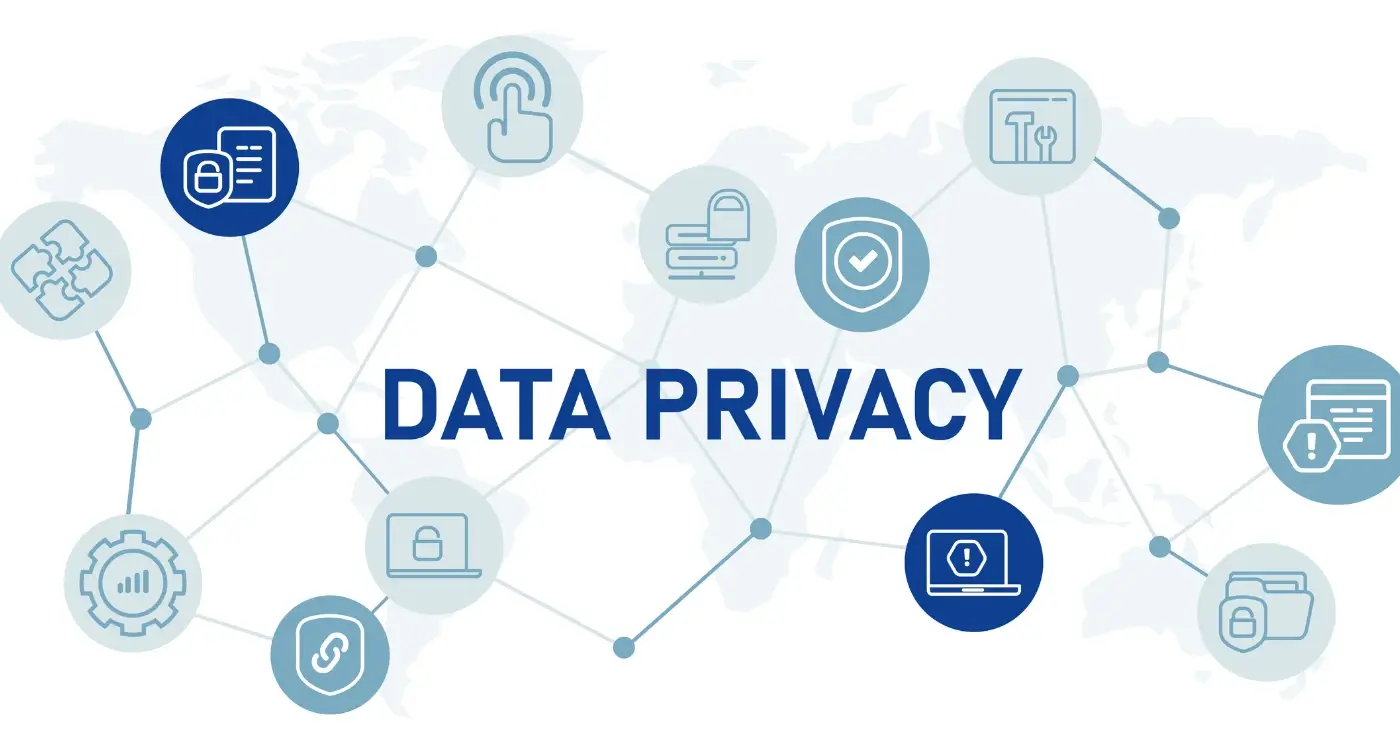What Are The Legal Requirements For Building Social Media Apps?
Every single day, millions of people share photos, videos, and messages on social media platforms without giving much thought to the complex legal framework that makes it all possible. Building a social media mobile app isn't just about creating sleek interfaces and engaging features—it's about navigating a maze of legal requirements that can make or break your platform before it even launches.
The legal landscape for social media apps has become increasingly complex, with new regulations appearing regularly across different countries and regions. Platform law now covers everything from how you handle user data to what content you're allowed to host, and regulatory compliance has shifted from being an afterthought to a core part of the development process.
The cost of non-compliance isn't just financial—it's the difference between a successful launch and a platform that never sees the light of day
Whether you're building the next big social platform or adding social features to an existing mobile app, understanding these legal requirements from day one can save you months of delays, expensive redesigns, and potential legal troubles down the road. This guide will walk you through the key legal considerations you need to know, breaking down complex regulations into practical steps you can actually implement in your development process.
Understanding Privacy Laws and Data Protection
Privacy laws might sound boring, but they're actually one of the most important parts of building a social media app—and trust me, I've seen what happens when developers ignore them! The main law you need to know about is GDPR (General Data Protection Regulation), which affects any app that has users in Europe. This law says people must give clear permission before you collect their personal information.
Your app needs to tell users exactly what data you're collecting and why you need it. Think of things like their name, email address, photos, and location. You can't just hide this information in long, confusing terms that nobody reads. The rules say it must be written in plain English that anyone can understand.
What Data Protection Means for Your App
Data protection isn't just about following rules—it's about being trustworthy. Users need to feel safe sharing their information with your app. This means storing their data securely and never selling it to other companies without permission.
Here are the main privacy requirements you'll need to handle:
- Get clear consent before collecting any personal data
- Allow users to delete their accounts and data completely
- Let people see what information you have about them
- Report any data breaches within 72 hours
- Only collect data that's necessary for your app to work
Most social media apps need a privacy policy that explains these things clearly. Don't copy someone else's policy—each app is different and has different data needs.
Age Verification and Child Safety Rules
When building a social media mobile app, protecting children isn't just good practice—it's the law. I've worked with countless clients who've been surprised by how strict these rules are, but trust me, there's good reason for them. Children under 13 need special protection online, and that means your app needs to follow specific regulations.
The Children's Online Privacy Protection Act (COPPA) in the US sets the standard here. If your app collects personal information from kids under 13, you need parental consent first. This includes everything from usernames to photos to location data. The UK has similar rules under the Age Appropriate Design Code, which requires apps to consider children's best interests when designing features.
Key Requirements for Child Safety
- Age verification systems that actually work
- Parental consent mechanisms for under-13s
- Limited data collection from children
- Privacy settings that default to the highest level
- Clear reporting systems for inappropriate content
- Regular content monitoring and moderation
Getting age verification right is tricky. You can't just ask "Are you over 13?" and call it a day. Regulators want to see genuine efforts to verify ages, which might mean asking for ID or using third-party verification services. The good news? Building these protections from the start is much easier than retrofitting them later.
Design your registration flow with age verification built in from day one. It's much harder to add these protections after launch, and regulatory compliance issues can shut down your app entirely.
Content Moderation and Community Guidelines
Building a social media app without proper content moderation is like opening a playground without any supervision—things can get messy fast! I've worked with clients who thought they could launch first and worry about moderation later. That's a recipe for disaster and potentially serious legal trouble.
Content moderation isn't just about keeping your app family-friendly; it's about legal compliance. Most countries have laws requiring platforms to remove illegal content promptly. This includes hate speech, terrorism-related content, and illegal imagery. The EU's Digital Services Act and similar regulations worldwide make platforms legally responsible for what users post.
Setting Up Your Moderation System
You'll need both automated tools and human moderators. AI can catch obvious violations, but humans are needed for context and nuanced decisions. Your community guidelines should be crystal clear about what's allowed and what isn't.
What Your Guidelines Must Cover
- Prohibited content types (violence, harassment, spam)
- Age-appropriate content standards
- Clear reporting mechanisms for users
- Response timeframes for different violation types
- Appeals process for wrongly removed content
- Consequences for repeat offenders
Remember, having guidelines isn't enough—you need to enforce them consistently. Courts will look at whether you took reasonable steps to moderate content when legal issues arise.
Terms of Service and User Agreements
When building a social media mobile app, your Terms of Service (ToS) acts as the legal contract between you and your users. Think of it as the rulebook that explains what people can and cannot do with your platform—and what happens if they break those rules. Without proper terms, you're leaving your regulatory compliance wide open to problems.
Your ToS needs to cover several key areas: user behaviour, account suspension procedures, content ownership, and liability limitations. Most importantly for social media apps, you need clear rules about what content users can post and share. This protects both your platform and other users from harmful material.
Making Terms User-Friendly
I've seen too many apps with terms that read like they were written by lawyers for lawyers. Users won't read 50 pages of legal jargon—they'll just click "agree" and move on. Your challenge is making terms that are legally sound but still understandable.
The best terms of service protect your business interests whilst being clear enough that users actually understand what they're agreeing to
Platform law varies between countries, so you might need different terms for different regions. Work with legal experts who understand mobile app regulations; they'll help you create terms that satisfy local compliance requirements whilst keeping your users informed about their rights and responsibilities.
Intellectual Property and Copyright Protection
Right, let's talk about one of the trickiest parts of building social media apps—protecting intellectual property and dealing with copyright issues. I've seen too many app developers get caught off guard by this stuff, and trust me, it's not something you want to figure out after you've already launched.
When users upload photos, videos, or any content to your platform, you need clear rules about who owns what. The Digital Millennium Copyright Act (DMCA) requires you to have a system for removing copyrighted content when someone complains about it. This means setting up a proper takedown notice process and responding quickly when copyright holders contact you.
User-Generated Content Ownership
Your terms of service must clearly explain what happens to content when users post it. Do they keep ownership? Can your app use their photos for marketing? These questions need answering upfront. Most platforms ask for a licence to use, display, and distribute user content—but users typically retain ownership.
Protecting Your Own IP
Don't forget about protecting your own intellectual property too. Your app's name, logo, unique features, and code all need protection. File trademarks for your brand and consider patents for truly innovative features. I always recommend getting legal advice early rather than trying to sort this out later when problems arise.
International Compliance and Regional Laws
Building a social media mobile app isn't just about following one set of rules—different countries have completely different laws that you need to follow. What's perfectly legal in the UK might be banned in Germany, and what works in America could land you in serious trouble in China. I've seen brilliant apps fail simply because the developers didn't think about regulatory compliance beyond their home country.
The European Union has some of the strictest platform laws in the world. GDPR affects how you handle user data, but there's also the Digital Services Act which controls how social media platforms moderate content. If your app has users in Europe, you can't ignore these rules—the fines are enormous and they will come after you.
Key Regional Requirements
- EU: GDPR compliance, Digital Services Act, right to be forgotten
- USA: COPPA for children under 13, state-specific privacy laws
- China: Content restrictions, data localisation requirements
- India: Personal Data Protection Bill, intermediary guidelines
- Brazil: LGPD (Brazilian General Data Protection Law)
Some countries require you to have local servers or offices before you can operate there. Others have specific content rules that might conflict with your app's purpose. You need to research every market you want to enter before you launch—not after.
Start with the strictest regulatory compliance requirements first. If your app meets EU and California standards, you'll be well-positioned for most other markets.
Conclusion
Building a social media app isn't just about creating something that looks good and works well—though those things matter too! The legal side of things can feel overwhelming at first, but here's what I've learned after years in this business: getting the legal requirements right from the start will save you headaches, money, and potentially your entire app later down the line.
The key areas we've covered—data protection laws like GDPR, age verification systems, content moderation policies, solid terms of service, copyright protection, and international compliance—they all work together. Miss one piece and you could find yourself in serious trouble. I've seen promising apps get shut down or face massive fines because they didn't take these requirements seriously enough.
What strikes me most is how these laws aren't just bureaucratic hurdles; they're actually there to protect users and create better apps. When you build proper privacy controls and content moderation systems, you're not just ticking legal boxes—you're building trust with your users.
My advice? Don't try to handle all this legal stuff on your own. Work with experienced app developers who understand these requirements and always get proper legal advice for your specific situation. The investment you make in getting this right will pay off when your app launches successfully and stays that way.
Share this
Subscribe To Our Learning Centre
You May Also Like
These Related Guides

How Do Social Media Apps Make Money?

What Are the Penalties for Non-Compliance With App Regulations?



